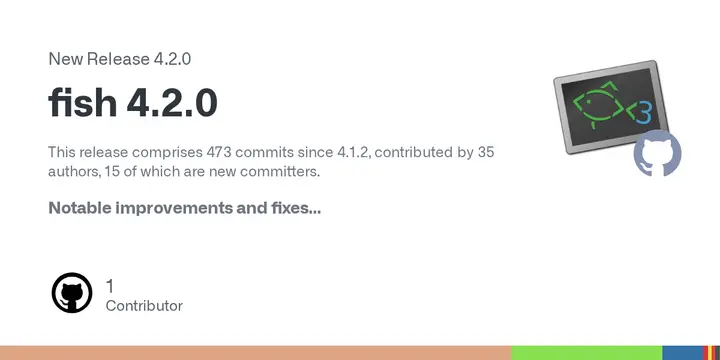In addition to new features, the update addresses several persistent issues such as the notorious "sticking" prompt, which would remain visible even after being cleared. Other bugs have also been resolved, contributing to a cleaner and more efficient command-line experience. Users who customize their shell environments will find the ability to differentiate terminal tab titles from window names using the new fish_tab_title feature particularly useful. Furthermore, improvements to mouse interaction allow for more seamless command execution without unnecessary disruptions.
Fish 4.2.0 also enhances the handling of long command outputs by intelligently hiding portions of multiline prompts that might otherwise clutter the display. Key bindings have been refined to prevent unwanted spaces from appearing, promoting a neater command line.
On the development side, the update aims to bolster the robustness and management of Fish. The minimum required Rust compiler version has been slightly increased, improving stability and access to newer features. Security enhancements include GPG-signing of release tags and source code packages, which reinforces trust for users embedding the shell in scripts or build tools. The default mode has shifted to standalone builds, preventing accidental use of installed files during shell execution and minimizing potential upgrade issues.
The update also resolves various smaller issues reported since the previous major release, such as problems with web-based configurations on older Python versions and resize glitches in VTE-based terminals. Specific build quirks affecting users on systems like illumos or MSYS2 have also been addressed, enhancing the overall reliability of the shell.
Overall, this release comprises 473 commits contributed by 35 authors, including 15 new committers, reflecting a collaborative effort to improve Fish shell's functionality and user experience.
Extended Perspective
As the Fish shell continues to evolve, users can expect ongoing developments that prioritize usability, security, and performance. Future updates may delve into even more advanced features, such as enhanced scripting capabilities or integrations with popular development tools, further solidifying Fish's position as a leading choice for users seeking a friendly command-line interface. Moreover, community contributions will likely play a vital role in shaping the shell's direction, encouraging users to actively participate in its development. The focus on addressing user feedback and improving stability suggests that Fish shell will remain a favored option among both novice and experienced terminal users
Fish 4.2.0 released
The latest update for Fish shell, version 4.2.0, has been released, offering improvements and refinements for users across various operating systems. The update includes features like an expanded history-based autosuggestion system, which now supports multi-line commands, as well as fixes for long-standing issues such as the "sticking" prompt. Developers have also worked on making Fish more robust and easier to manage, including updates to the Rust compiler version and improved security measures through GPG-signing of release tags and source code packages.


